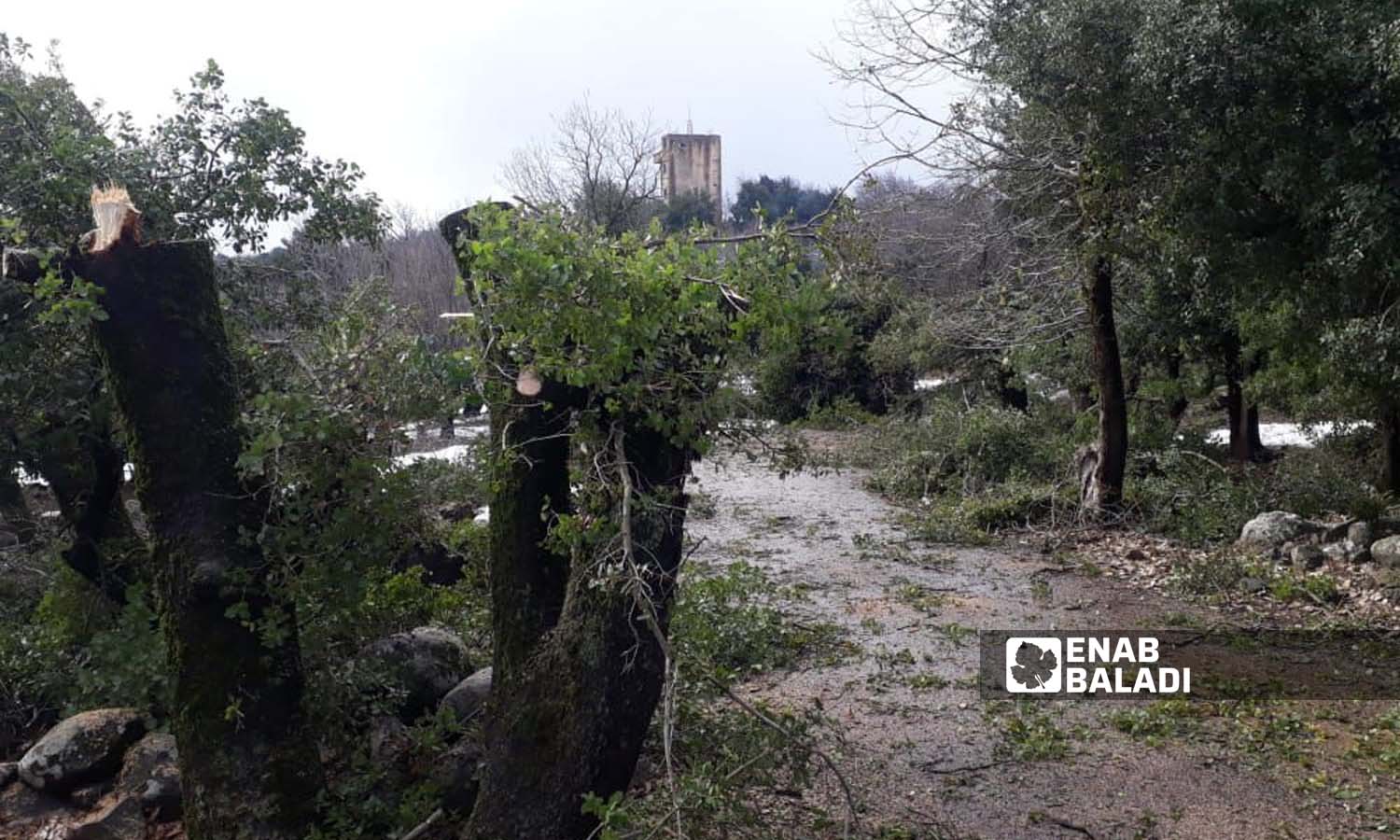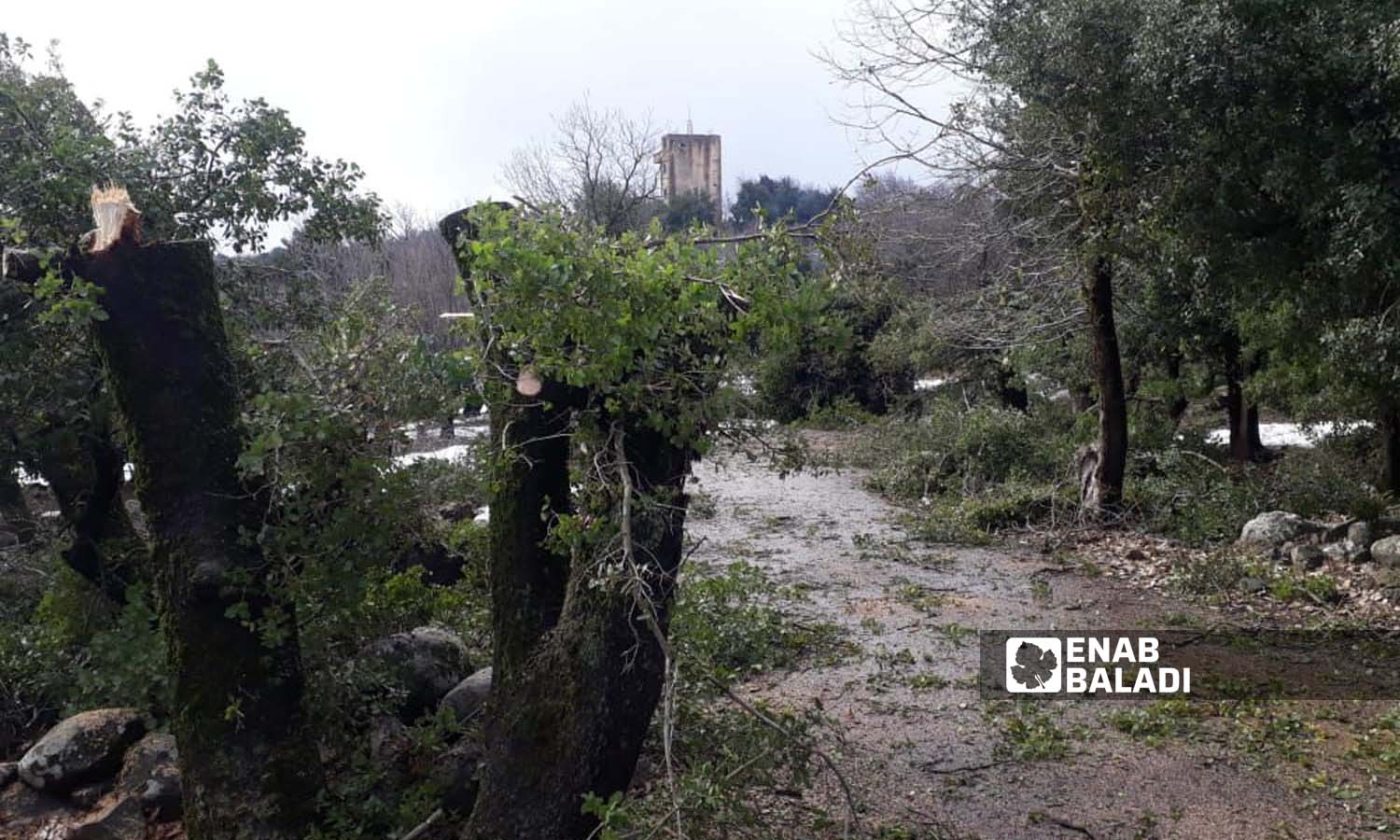



Quneitra – Mohammad Fahad
The reserve of Jubata al-Khashab and Trinjeh is a natural forest reserve and one of the most important tourist attractions in the southern Quneitra governorate, which is characterized by a mild climate during summer that renders it a destination for tourists from various Syrian regions.
The reserve is located at the southern foot of Mount Hermon (Jabal al-Shaykh) on the northern side of Quneitra city. It covers an area of 133 hectares and is about 1,100 meters above sea level.
There are a variety of trees that grow in the forest, namely oaks, hawthorns, wild plum trees, and calicotome. It is also the habitat of many birds and animals.
Up until mid-2018, the people had managed to protect the forest by means of individual efforts throughout their war with the Syrian regime. Things, however, started to fall apart after the Syrian regime took control of the area and activated the al-Hiraj police station under the Quneitra Agriculture Directorate.
The logging of trees gradually increased to about 50 trees per day, particularly during this year’s winter; with little heating oil and power outages, the haphazard tree felling turned ruthless.

Oak trees near al-Zira’a Tower in the Jubata al-Khashab forest in southern Quneitra governorate (Enab Baladi/Mohammad Fahad)
According to Enab Baladi’s correspondent in Quneitra, both the Syrian regime and the Lebanese Militia of Hezbollah are encouraging the cutting and disposal of forest trees. Checkpoints have been opened before firewood traders so that they could cut tons of firewood and move it to nearby villages and towns, such as the village of Hadar or to Daraa region, to sell for a market price of 500,000 SYP per ton (about 125 USD).
Traders also buy firewood from townspeople for 350,000 SYP per ton (about 90 USD) to sell it in the markets at 500,000 SYP per ton.
Besides, the people of Hadar, whose village is located on the northern side of the forest that is close to their farmland, are cutting down hundreds of years old trees in order to expand their farmsteads, as monitored by Enab Baladi’s reporter in the region. This goes on without them being held accountable by the competent government authorities.
“This forest means a lot to me. Whenever I get overwhelmed, I would go outside and inhale the scent of trees and the woodsy fragrance and listen to birds. Today, my heart aches at the sight of brutal felling of trees”, said Abu Hussein, a man in his sixties whose house is on the southern tip of the forest.
Abu Hussein recounted to Enab Baladi how these trees had withstood many wars, from the French colonization up until this day. “Today, these trees fall one by one for a few pounds and systematic agreements,” he says.
An employee of the al-Hiraj (Forest) police station of the Quneitra Agriculture Directorate told Enab Baladi that there has been daily logging of more than 50 trees of different heights and ages since the beginning of the winter season. One tree weighs three to five tons of greenwood, making matters even worse.
When asked about the police station’s actions against those who violate the law, the employee, whose name Enab Baladi will not disclose for his own safety, said that the police station writes reports and sends them to the Agriculture Directorate of Quneitra, in addition to filming tree logging on video and sending it to the said Directorate. However, “this is pointless, as no one assumes the responsibility of holding violators accountable and restoring order to the region,” he added.
if you think the article contain wrong information or you have additional details Send Correction